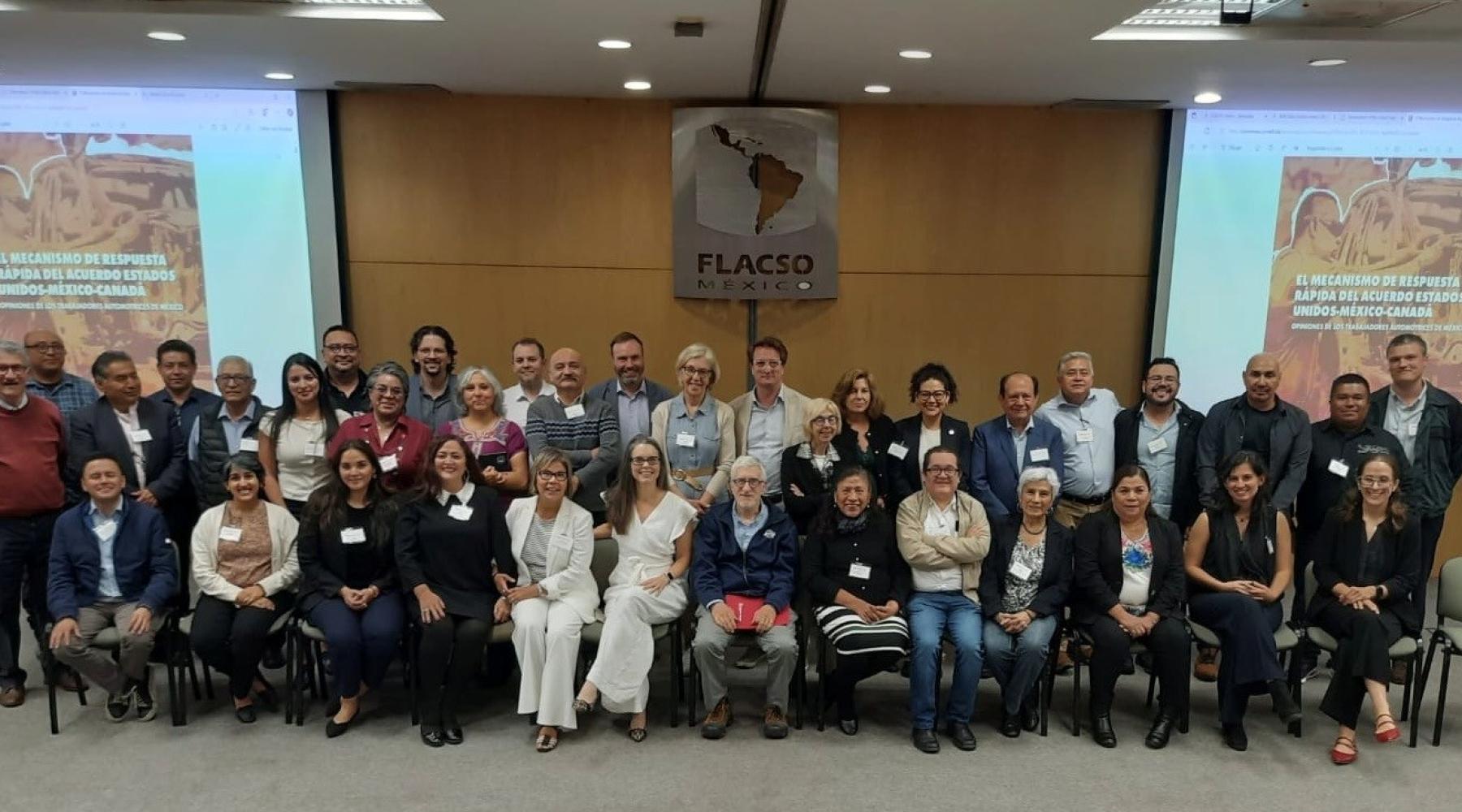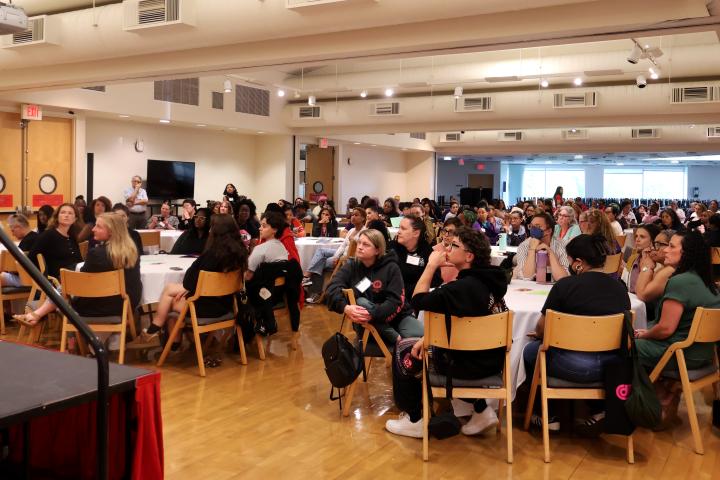
Worker Voices Matter in Deciding the Future of the U.S.-Mexico-Canada Trade Agreement (USMCA)
Worker Voices Matter in deciding the future of the US-Mexico-Canada Trade Agreement (USMCA)
As American consumers become more aware of the impact of tariffs on the cost of living in our cities and towns, it is essential to understand global trade dynamics and its effects on worker and union rights in both the United States and Mexico, a critical U.S. trade partner.
Given the ongoing debate on the impact of trade tariffs on U.S. job creation, the Worker Institute, with a generous grant from CAROW, sponsored a transnational labor roundtable conference that brought together forty labor and academic stakeholders from the United States, Mexico, and Canada to discuss the current status of the USMCA Rapid Response Mechanism (RRM), a labor rights enforcement mechanism under the USMCA in light of current geopolitical dynamics.
During the roundtable discussions, these academics, labor leaders, and advocates shared their experiences with filing RRM cases. They evaluated the current process of filing petitions, as well as the results of many ongoing cases involving labor rights violations across the region. Through a series of panels and discussions, these leaders identified current challenges in filing petitions under the RRM, discussed potential alignment in strategic approaches to the 2026 trinational Joint Review of the USMCA, and explored ways to work together despite current tensions in politics and trade in the region.
This international gathering of labor leaders grew out of the seminal study on the findings of the 2024 Cornell ILR research report, entitled “Enforcement Of The USMCA Rapid Response Mechanism (RRM): Views From Mexican Auto Sector Workers.” This seminal study examined the impact of trade policy on workers in the Mexican and U.S. automotive industry. The study found that “trade agreements like the USMCA, enforced under a worker-centered trade policy, can play an important part in deterring labor rights violations and empowering workers to bargain with management,” stated coauthor of the report Desirée LeClercq.
LeClercq, currently an assistant professor at the University of Georgia School of Law, researched and drafted the report while at the ILR School, alongside coauthors Alex Covarrubias-V, director of the Transborder Studies Program at The College of Sonora, and Cirila Quintero Ramirez, professor-researcher at El Colegio de Frontera Norte, Unidad Matamoros. The report’s authors, along with the Executive Director of the Worker Institute, an original contributor to the study design and findings, co-hosted the conference in Mexico City, entitled “The US-Mexico-Canada Trade Agreement and the RRM; Current Dynamics and Perspectives for the Future.” The international labor roundtable was hosted by FLACSO, one of the most respected social sciences universities in Mexico City, Mexico
During the various panel discussions, labor leaders reached a consensus on the need to continue working together to strengthen working conditions and raise standards for workers in all three countries. Participants suggested that labor experts and academics should help to establish a vision that reflected an understanding of the conditions on the ground—they pointed out that what was most convenient for workers in one country may not be transferable to workers in another country.
More education and training on the Mexican side, provided by independent organizations, would help more workers understand and enforce their rights. In the United States and Canada, efforts should focus on strengthening the understanding of the integrated nature of production, as well as enforcing U.S. labor law and the right to organize. Beyond Mexico, conference participants suggested the creation of a tri-country political labor strategy. This strategy would signal that the U.S. and Canadian governments prioritize labor rights and (ideally) promote worker solidarity between the three countries. It could also lead to further strengthening the bargaining power of union auto-workers in the North American region.
The Worker Institute is committed to research and education that promotes worker and union rights in critical areas of the American economy. The auto sector industry is vital to the enhancement of the manufacturing industry in the United States, and as such, we are committed to supporting research and education that advances collaboration with unions such as the UAW, the USWA and the UBT as they continue to support worker organizing in the U.S. and across the borders of critical U.S. trade partners such as Mexico and Canada.
For more information on research regarding worker rights in the auto industry in the United States, Mexico, and Canada, contact Patricia Campos-Medina at pec1@cornell.edu.




